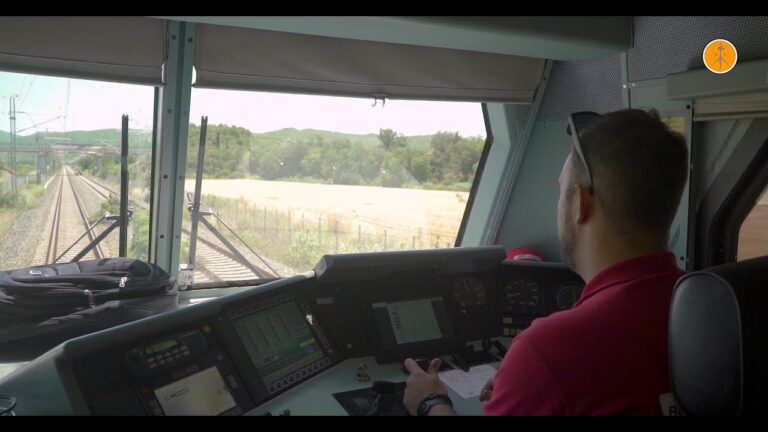Ticket Inspector: Job Description and Salary Revealed!
Ticket Inspector Job Description
A Ticket Inspector is responsible for ensuring that passengers on public transportation systems have valid tickets or passes. They are responsible for checking tickets, issuing fines to fare evaders, and maintaining order on trains, buses, or trams.
The primary duties of a Ticket Inspector include checking passengers’ tickets, verifying their validity, and providing assistance to passengers who may have questions or difficulties. They must be knowledgeable about different ticket types and fare regulations to be able to answer any queries accurately.
In addition, Ticket Inspectors are responsible for detecting and reporting any suspicious or illegal activities on public transportation. They must maintain a professional and calm demeanor while dealing with difficult or confrontational passengers.
Ticket Inspector Salary
The salary of a Ticket Inspector may vary depending on factors such as location, experience, and the transportation company they work for. On average, the salary ranges from $30,000 to $45,000 per year.
Some companies may offer additional benefits such as health insurance, retirement plans, and paid vacation time. The salary may also increase with years of experience and additional responsibilities within the role.
Overall, being a Ticket Inspector can be a rewarding career for those who enjoy working in a customer service-oriented role and have a passion for ensuring the safety and efficiency of public transportation systems.

Ticket Inspector Job Description Template
Ticket Inspector Job Description
A ticket inspector, also known as a fare inspector or ticket checker, is a professional responsible for ensuring that passengers have valid tickets or passes while using public transportation systems such as buses, trains, trams, or subways. Their primary role is to enforce fare payment regulations and maintain the integrity of the transport system.
Ticket inspectors are typically employed by transportation authorities or private companies contracted to provide ticket inspection services. They are required to work in shifts, including evenings, weekends, and holidays, as public transportation operates around the clock.
The main responsibilities of a ticket inspector include checking passengers’ tickets or passes, verifying their validity, and ensuring that they are using the correct type of ticket for their journey. They may also check for any concessions or discounts applicable to certain passengers such as students, seniors, or disabled individuals. If a passenger is found without a valid ticket or pass, the ticket inspector may issue a fine or penalty.
In addition to ticket inspection, the role may also involve providing information and assistance to passengers, answering their queries, and guiding them towards the correct platforms or routes. Ticket inspectors are expected to have excellent customer service skills and maintain a professional and courteous demeanor while dealing with passengers.
Two important qualities for a ticket inspector are attention to detail and strong communication skills. Attention to detail is crucial for identifying counterfeit or expired tickets, as well as spotting any discrepancies in fare payment. Strong communication skills are essential for interacting with passengers, explaining fare regulations, and addressing any concerns or disputes that may arise.
Overall, a ticket inspector plays a vital role in ensuring the smooth operation of public transportation systems by enforcing fare payment regulations and maintaining passenger safety and security.
Ticket Inspector Responsibilities
Ticket Inspector Requirements
How Much Does A Ticket Inspector Make?
Ticket Inspector Salary
| Position | Salary |
|---|---|
| Entry-Level Ticket Inspector | $30,000 – $40,000 per year |
| Experienced Ticket Inspector | $40,000 – $50,000 per year |
| Senior Ticket Inspector | $50,000 – $60,000 per year |
A ticket inspector is responsible for ensuring that passengers have valid tickets or passes while traveling on public transportation. They verify tickets, issue fines to fare evaders, and answer any questions or concerns from passengers. The salary of a ticket inspector varies depending on their experience and position within the organization. Entry-level ticket inspectors can expect to earn between $30,000 and $40,000 per year, while experienced ticket inspectors can earn between $40,000 and $50,000 per year. Senior ticket inspectors, with extensive experience and expertise, can earn between $50,000 and $60,000 per year. These salary ranges may vary based on location and the specific transportation company. Overall, a career as a ticket inspector offers competitive salaries and opportunities for growth within the field.
Ticket Inspector Salaries by Country
Top Paying Countries for Ticket Inspector
| Country | Salary Range |
|---|---|
| Switzerland | $60,000 – $80,000 |
| Australia | $50,000 – $70,000 |
| Germany | $40,000 – $60,000 |
| United States | $35,000 – $55,000 |
| United Kingdom | $30,000 – $50,000 |
A ticket inspector’s salary may vary depending on the country they work in. According to available data, Switzerland is one of the top paying countries for ticket inspectors, with a salary range of $60,000 to $80,000 per year. Australia follows closely behind with a salary range of $50,000 to $70,000. Germany, the United States, and the United Kingdom also offer competitive salaries in the range of $30,000 to $60,000 per year. It’s important to note that these figures are approximate and can vary based on factors such as experience, qualifications, and location within the country.
A video on the topic Ticket Inspector
Video Source : The Chats – Topic
Interview Questions for Ticket Inspector
1. What are the main responsibilities of a Ticket Inspector?
A Ticket Inspector is responsible for ensuring that passengers have valid tickets or travel passes while using public transportation. They check tickets, verify their validity, and issue penalties or fines to passengers without proper tickets.
2. What qualifications or skills are required to become a Ticket Inspector?
To become a Ticket Inspector, candidates usually need a high school diploma or equivalent. Good communication skills, attention to detail, and the ability to handle difficult situations calmly are important. They may also undergo specific training provided by the transportation company.
3. How do you handle confrontations with passengers who refuse to show their tickets?
When faced with confrontations, it is important to remain calm and professional. I would try to explain the importance of having a valid ticket and the consequences of traveling without one. If the passenger still refuses to comply, I would inform them of the penalties they may face and seek assistance from the appropriate authorities if necessary.
4. How do you ensure that you are treating all passengers fairly and without any bias?
As a Ticket Inspector, it is crucial to treat all passengers fairly and without any bias. I would follow the established procedures and guidelines provided by the transportation company. I would treat every passenger equally, regardless of their age, gender, race, or any other characteristic.
5. How do you handle situations where a passenger claims to have lost their ticket?
If a passenger claims to have lost their ticket, I would ask them to provide any proof of purchase or any other relevant information that could help verify their claim. If they are unable to provide any evidence, I would inform them about the consequences and penalties they may face for traveling without a valid ticket.
6. What steps do you take to ensure the safety and security of passengers while performing your duties?
While performing my duties, I would always prioritize the safety and security of passengers. I would be vigilant and observant of any suspicious activities or behaviors. If I notice any potential threats or safety concerns, I would immediately report them to the appropriate authorities.
7. How do you handle situations where a passenger presents an expired ticket?
If a passenger presents an expired ticket, I would inform them that the ticket is no longer valid and explain the consequences of traveling with an expired ticket. Depending on the transportation company’s policies, I would either issue a warning or impose a penalty according to the established guidelines.
8. How do you stay updated with the latest ticketing regulations and procedures?
To stay updated with the latest ticketing regulations and procedures, I regularly attend training sessions and workshops provided by the transportation company. I also keep myself informed about any changes or updates through internal communication channels and official announcements.
9. How do you ensure that passengers understand the ticket inspection process and their rights?
I would make sure to communicate the ticket inspection process clearly and in a polite manner to passengers. I would answer any questions they may have and provide information about their rights as passengers. If necessary, I would provide them with relevant brochures or pamphlets to further explain the process and their rights.
10. How do you handle situations where a passenger mistakenly boards the wrong vehicle or train?
If a passenger mistakenly boards the wrong vehicle or train, I would try to assist them in finding the correct route or train. Depending on the situation, I would either guide them to the right vehicle or train or help them with alternative options to reach their desired destination.






